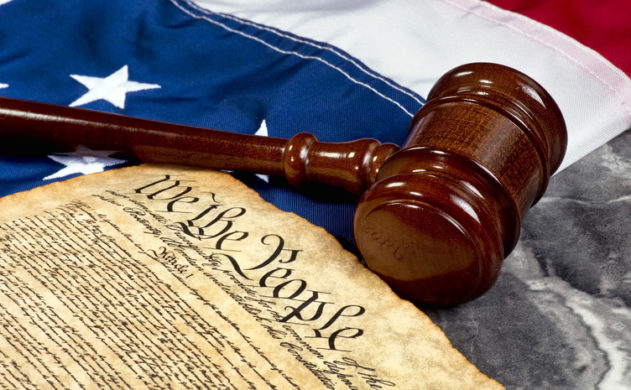We the people have agreed to be ruled by our system of government, with its checks and balances, and Constitutional limitations. We have not agreed to be ruled by a tyrant who refuses to respect our nation’s legal foundation.
Despite all the millions of people who have marched and organized and emailed and called, a fair number of Americans seem to have been in shock since the 2016 presidential election. For some of us, the election results dealt a mortal blow to what we thought it meant to be Americans — the idea that, regardless of party or politics, we all believe in the value of facts, experience, competence, decency, respect, and hard work.
But many of us are also in shock because the election results — and their aftermath — have told us that our lives don’t matter.
So, let me say this. We do matter.
Women matter. African Americans matter. Latinos matter. Asians matter. Native Americans matter. LGBT people matter. Jews matter. Muslims matter. Atheists matter. Immigrants matter. Refugees matter. People living in poverty matter. People who got health care because of the Affordable Care Act matter. The judiciary matters. Scientists and other experts matter. People with disabilities matter. People suffering from mental illness matter. Criminal defendants and prisoners matter. Minimum wage employees matter. Unionized workers matter. Children attending public school matter. Teachers matter. People receiving social security, medicare, and medicaid matter. Veterans matter. Public sector workers matter. Reporters and newscasters matter.
Stating that we all matter is a crucial baseline. In the face of hatred, silence, systemic bias, and a complete lack of consideration and accountability, we must continue to insist that we matter. Because, while our democracy does not require citizens to agree with one another, it is essential that all citizens are represented and are able to influence the direction our country takes.
Of course, those who think otherwise were quick to delegitimize President Obama. For them, his constituents and their values and priorities did not matter. Therefore, it’s not surprising that they accused Obama of being a foreigner and tried to define him as a person who could not matter. This narrative also allowed them to delegitimize Obama’s supporters.
To these people, it was not outrageous or anti-democratic to obstruct Obama’s every move, to refuse to have healthy debates on the major issues facing the nation, or even to ignore Obama’s various nominees, including his nominee for the open seat on the Supreme Court. On the other hand, these same people expect their views to be respected. They take it for granted that they are Americans and that their opinions matter.
Those who would prefer to shut out a broad swath of American perspectives believe that Democrats, progressives, and the various groups of people I named above have been preventing America from being great. They believe differing viewpoints are un-American and do not matter; that to make America great again these voices must be silenced.
A lot of hard work has gone toward that goal, toward making sure that some of us don’t matter politically. This goes beyond demonization and falsehoods into the realm of public policy. Take the practice of gerrymandering, which has ensured that certain demographics and constituencies are at a disadvantage in many districts across the country. This effectively makes their votes matter less than others.
Or consider voter suppression. The more obstacles placed in the path of potential voters, the more difficult it is for certain people to matter. Think about how hard it is to register to vote in certain places; how voter ID laws impact minority, handicapped, and elderly voters; the consequences of felon disenfranchisement; the lack of early voting options in some states; and the long lines faced in certain underfunded districts.
And let’s not forget about the dark money that allows certain anonymous donors to have a tremendous amount of influence over our elections — to the detriment of the average voter.
Given all this, it’s not terribly surprising that when someone who ‘doesn’t matter’ gets into office, these same forces deem it appropriate to strip the office of power, as was done by the legislature in North Carolina to the newly elected Democratic governor.
Nor is it surprising that a person who thinks so many Americans do not matter would immediately rule by decree, and demand silence and obedience from the media, the citizenry, and the judiciary.
But, as the old saying goes, we are a nation of laws, not of men. We the people have agreed to be ruled by our system of government, with its checks and balances, and Constitutional limitations. We have not agreed to be ruled by a tyrant who refuses to respect our nation’s legal foundation.
Since we all matter — our founding documents, system of government and laws establish this fact — and since we need our democracy to carry us into the future, we must keep repeating ourselves until we are heard.
Ariel Chesler is an attorney and writer in New York. He lives with his wife and two daughters, and one cat. He is the son of feminist author and psychologist Phyllis Chesler.
Other Links:

